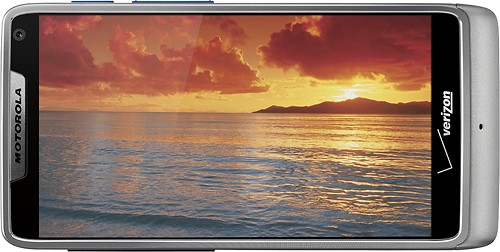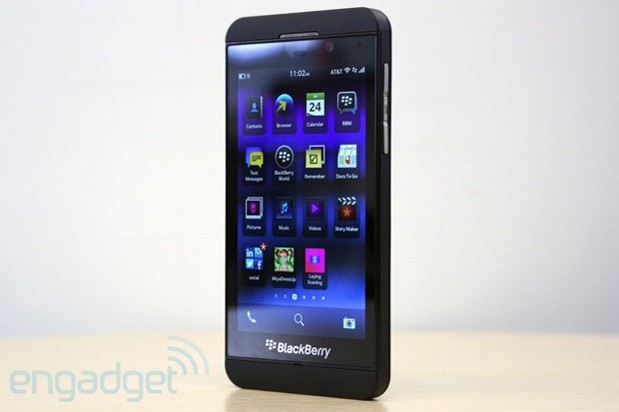The new phone, the BlackBerry Z10, launches with a new modern operating system that makes use of gesture-based, button-less controls and sports a number of interesting software additions based around BlackBerry's traditional target markets - government, industry and teens.
For example, there's a toggle between home and work modes (which BlackBerry are calling Balance), video calling and screen sharing have been added to BlackBerry Messenger, and all notifications and messages are collected in a unified BlackBerry Hub. There's even a camera mode called TimeShift that allows you to shoot a burst of photos, then choose the best face for each person in the photo to ensure that no one is blinking or pulling a weird expression. It's a surprisingly capable operating system that feels as modern as any of the other big players in the market.
I think that BlackBerry has caught up a massive amount with BlackBerry 10. When you consider how dated their operating system was, BlackBerry 10 is a massive technical achievement. Their decision to rename themselves is a good indicator too that they're giving it their all to make this thing work. But despite a pair of strong launch devices, BlackBerry are still behind Windows Phone - and way behind Android or iOS.
In order to challenge Windows Phone for that third place spot, BlackBerry is going to need to continue to focus on their traditional strengths: business, security and messaging. We've already seen some of that, with the excellent software keyboard, the new additions to BlackBerry Messenger and being able to switch easily between sandboxed home and work modes, but they need to keep having good ideas and keep refining those features. It's here that they'll win over users from competing operating systems, and regain former BlackBerry users too.
The app situation will also need to be improved. I think that this will largely come with time, particularly if BlackBerry can encourage developers that it will be easy to port their apps over. Still, it seems like the vast majority of their apps are badly designed - even core apps like messaging and email look shoddy, with wonky fonts and bad spacing, and lack the beautiful design reflected in the hardware and
accessories of the Z10.
The Android emulation layer is also badly in need of an update; at the moment running an Android app in a virtual 2.3 Gingerbread environment is incredibly outdated and doesn't mesh well with the rest of the BlackBerry experience. I understand the need to allow Android apps to be ported easily, but I feel that BlackBerry would be stronger without these apps at present.
Finally, the BlackBerry Hub also needs work. I feel that the lack of a distinction between notifications and the actual content you're being notified about is an interesting design choice, but right now it isn't implemented well - The Verge highlighted a lot of issues with moving from one notification to another and also the inability for users to dismiss notifications on things that don't require immediate attention, like Twitter mentions.
If BlackBerry can fix these problems, they may have a shot. While they are incredibly late to the modern OS party, they've shown a remarkable rate of improvement that hopefully will be only be hastened in the crucible of public opinion. That number 3 spot is within reach, but this is the Canadian company's last shot to challenge for it. If we don't see improvements before the next cycle of Apple, Android and Windows Phones then BlackBerry may rapidly disappear from the mobile landscape.
 The Motorola RAZR HD may of been rocking the U.S. for some time now, but it's only today that the Android device has become available SIM-free in the UK.
The Motorola RAZR HD may of been rocking the U.S. for some time now, but it's only today that the Android device has become available SIM-free in the UK.










